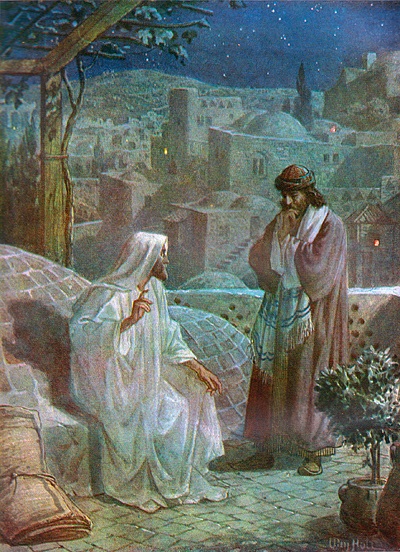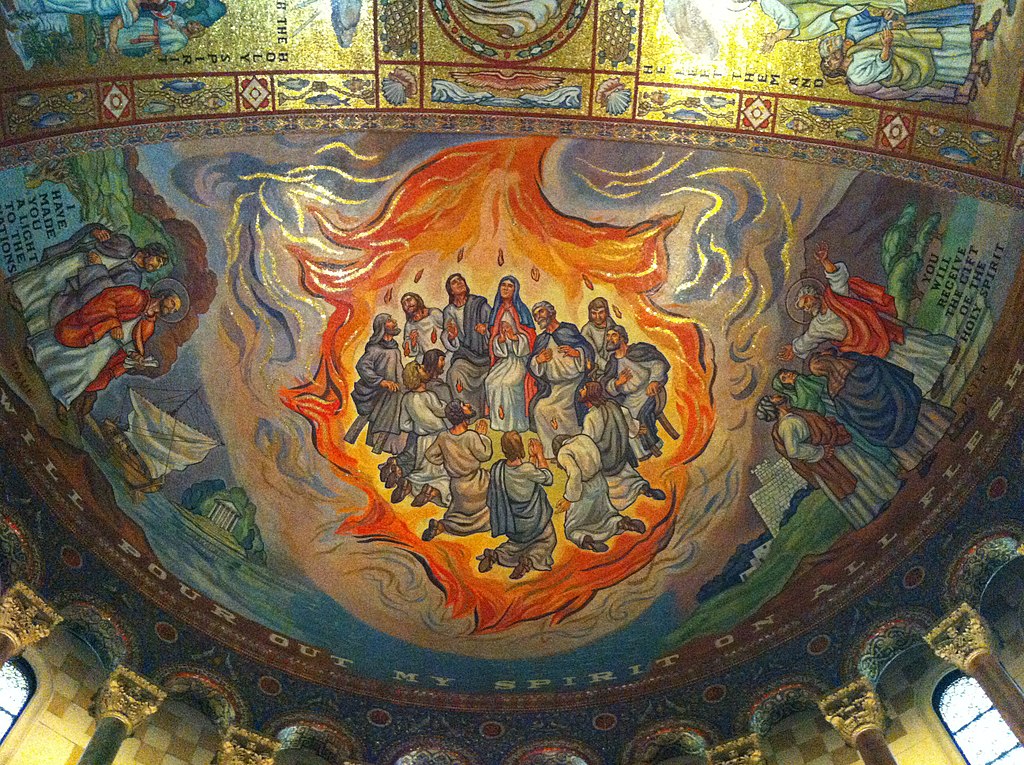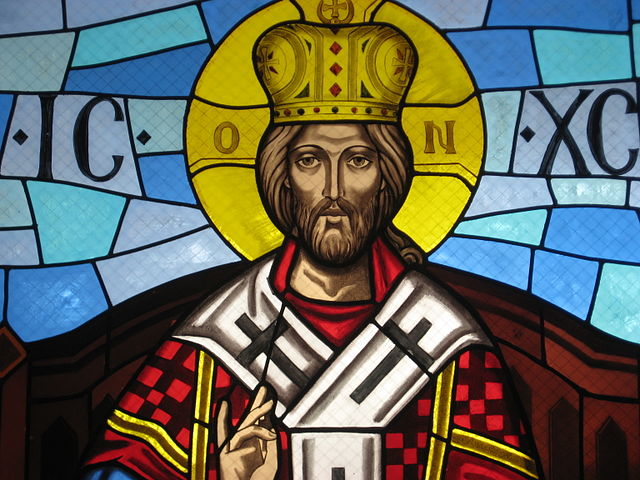Listen to Sermon
Pastor Tom Johnson, May 20, 2018
Nicodemus is an expert in Hebrew Bible. He is a highly educated. He is a highly respected leader. He hears about Jesus. And now he wants to meet him. He comes to Jesus by night. He likely did not want his conversation with Jesus to be publicly known. He might have even been embarrassed or ashamed for people to know he sought a private meeting with Jesus. And so he comes under the cover of darkness. But he also comes under the shroud of spiritual and intellectual darkness. His purpose for going to meet Jesus is not very clear. His objective in seeking Jesus may not even be very clear to Nicodemus himself! At first, Nicodemus sounds like he has come out to validate Jesus and his ministry. “Rabbi, we know that you are a teacher who has come from God; no one can do these signs that you do apart from the presence of God.”
 |
| William Hole 1846-1917 |
Jesus turns the tables very quickly to say that no one can see the kingdom of God without being born from above. In other words, “Nicodemus, you cannot truly know the presence of God by intellectual knowledge.” And when that confuses Nicodemus, Jesus says, “You cannot enter the kingdom unless you are born of water and the Spirit.” In other words, “Nicodemus, you cannot truly participate in what God is doing unless God brings you into its reality. And he does so through Baptism—the water, the Word, and the Holy Spirit. “Do not be astonished,” Jesus says to Nicodemus. The Holy Spirit is like the wind that you cannot control or predict when and to whom he will give new life. But this confuses Nicodemus even more! “How can these things be?” he says. And that’s when Jesus really turns the table on Nicodemus. “Are you a teacher of Israel, and yet you do not understand these things?” “You came to validate me as a faithful teacher and I cannot even validate you?”
I love this exchange between Nicodemus and Jesus. Because it reminds us of something very important: Christianity is not about intellectual knowledge. Being a child of God is not about how smart we are. God is not impressed by arrogance. As one pastor in New York City told me, “Theological superiority does not do well in the city.” Ironically, confidence in ourselves—in our smarts or our abilities—hold us back. Just like Nicodemus, we are in the dark if we think we can intellectually make our way to God. I believe God asks us let go of the pride. He asks us to let go of notion that we have this God thing figured out. He asks us to let go of the delusion that God can be fit into a reduced and manageable formula. “No eye has seen, nor ear heard, nor the heart of man imagined, what God has prepared for those who love him,” Scripture says (1 Cor 2:9; Isa 64:4). Thanks be to God that we do not enter the Kingdom of God through our theological prowess, intellect, or street smarts. We walk by faith, not by sight. And when we do, we open ourselves up to the majesty and mystery of God. We have a glimpse of his glory through Jesus Christ. Our intelligence is put to good use—when filled with the wonder and love of God. We enter the Kingdom of God as little children. And like all children we are born of water. But now, as the children of God, we are born of water—but also the Word, and the Holy Spirit. “Unless we become as little children,” Jesus says, “you will not enter the Kingdom of God” (Mark 10:15).
Nicodemus was humbled and brought into the awe and wonder of God. And that is a good thing. That’s what happened to Isaiah when he encounters God in our Old Testament reading. He realizes his mortality, his sinfulness, and his unworthiness. Nicodemus also realizes the limitations of his brilliant mind. He came to visit a teacher under the cover of darkness. And he is blinded by the light of truth from Jesus who is much more than a teacher. He is God’s Son, sent by the love of the Father to bring forgiveness and eternal life to anyone who receives him by faith—by faith—not by our credentials, intellect, sincerity, or good works. This is what Jesus graciously does for Nicodemus. He helps him let go of the delusion that he had everything categorized and figured out. Jesus helps Nicodemus let go of what he thinks he knows about Jesus to enter into a life-changing relationship with God.
That is what Holy Trinity Sunday is all about—to be humbled and be brought into the awe, wonder, and mystery of the one true and living God who is also three Persons—God the Father, God the Son, and God the Holy Spirit. God the Father loves the world. He demonstrates his love by sending his Son Jesus to be born, live, teach, heal, die and rise again. He sends the Holy Spirit into our hearts and lives so that we are born again—born from above, forgiven, and with the assurance of eternal life. There is no way we can wrap our minds around that. And that is just the point that we are to discover through this story of Nicodemus. It is not about our minds wrapping around the mysteries of God but the loving, forgiving, and life-giving arms of Triune God that wrap around us. Cleansed of pride and self-righteousness, Nicodemus and we are finally ready to receive that simple yet mind-boggling message, “For God so loved the world that he gave his only Son, so that everyone who believes in him will not perish but have eternal life.



